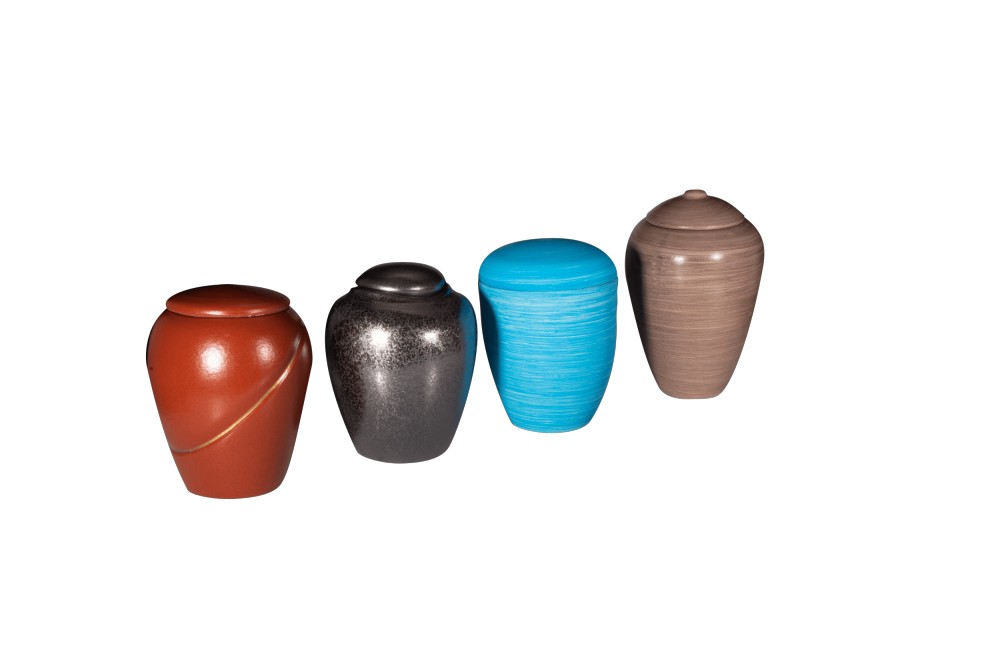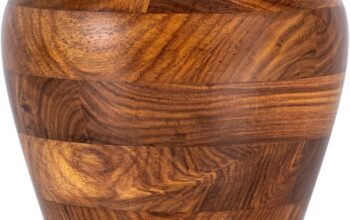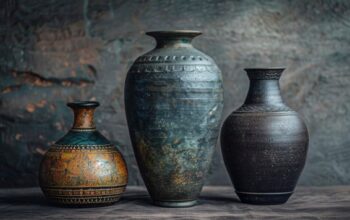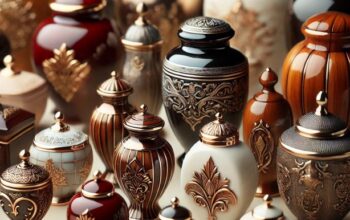
Cremation urns serve as a dignified and personal way to honor the memory of a loved one. These containers not only hold the ashes of the deceased but also reflect their life and personality through their design and material. This guide provides a thorough overview of cremation urns, including their types, materials, and considerations for choosing the right urn.
What is a Cremation Urn?
A cremation urn is a vessel designed to contain the cremated remains (ashes) of a deceased individual. These urns come in various shapes, sizes, and materials, offering families a way to preserve the remains in a manner that respects and commemorates their loved one.
Types of Cremation Urns
Cremation urns come in several types, each suited for different needs and preferences:
1. Traditional Urns
Traditional urns are often crafted from durable materials like brass, bronze, or marble. They feature classic designs, which can include engravings, inlays, and ornate details. These urns are typically used for display in homes or for burial.
2. Keepsake Urns
Keepsake urns are smaller urns designed to hold a portion of the ashes. They are ideal for families who want to divide the remains among several family members or keep a small amount of ashes in a special place.
3. Biodegradable Urns
Biodegradable urns are made from eco-friendly materials such as recycled paper, cornstarch, or salt. These urns are designed to break down naturally over time, allowing the remains to return to the earth. They are often used for environmentally conscious families who wish to bury the urn or scatter the ashes in nature.
4. Custom Urns
Custom urns are tailored to reflect the unique personality and interests of the deceased. Families can choose designs that incorporate personal elements such as favorite hobbies, symbols, or custom engravings. These urns are often handcrafted and provide a highly personalized tribute.
5. Memorial Urns
Memorial urns often include features such as photo frames, plaques, or compartments for personal mementos. They serve as a functional tribute that combines the urn with additional elements of remembrance.
Materials Used in Cremation Urns
The material of the urn plays a crucial role in its appearance and durability. Common materials include:
1. Brass and Bronze
Brass and bronze urns are prized for their strength and classic appeal. They are often polished or engraved, making them suitable for traditional settings. Their durability makes them a popular choice for both display and burial.
2. Marble and Granite
Marble and granite urns offer a timeless, elegant look with unique natural veining patterns. These materials are durable and often used for permanent placements or memorials.
3. Wood
Wooden urns provide a warm, traditional feel. They can be intricately carved or simply finished, depending on the desired aesthetic. Wood urns are suitable for home display or burial.
4. Ceramic and Glass
Ceramic and glass urns are often chosen for their artistic qualities. They come in various colors and designs, and can be customized with unique patterns and finishes.
5. Biodegradable Materials
Biodegradable urns are made from materials that decompose naturally, such as cornstarch or salt. They are designed for eco-friendly burials or scattering ceremonies.
Factors to Consider When Choosing an Urn
Selecting the right cremation urn involves several important considerations:
1. Size
The urn must be large enough to hold the ashes. A general guideline is that one cubic inch of urn space is needed for each pound of body weight. Ensure the urn size matches the volume of ashes you need to accommodate.
2. Material
Choose a material that aligns with your preferences and the urn’s intended use. Consider factors like durability, appearance, and whether the urn will be displayed, buried, or scattered.
3. Design and Personalization
Select a design that reflects the personality and interests of the deceased. Many urns offer customization options, such as engravings, custom artwork, or photo frames, allowing you to create a unique and personal tribute.
4. Usage
Consider how you plan to use the urn. Whether it will be displayed in a home, buried, or used for scattering, choose a design and material that suits the intended purpose.
Caring for Cremation Urns
Proper care ensures the urn remains a lasting tribute. Maintenance varies by material:
- Brass/Bronze: Wipe with a soft cloth and use metal polish as needed.
- Marble/Granite: Clean with mild soap and water; avoid abrasive cleaners.
- Wood: Dust regularly and apply wood polish or conditioner.
- Ceramic/Glass: Clean with a soft, damp cloth; avoid harsh chemicals.
Regulations for Storing or Scattering Ashes
Regulations for storing or scattering ashes vary by location. Check local laws and obtain any necessary permits before proceeding with scattering or placing the urn. Some areas have specific rules regarding where and how ashes can be scattered.
Conclusion
Cremation urns offer a meaningful way to honor and remember loved ones. With a variety of types and materials to choose from, families can find an urn that perfectly reflects their loved one’s life and legacy. By considering factors such as size, material, and design, you can select an urn that provides a fitting tribute and lasting memorial.


